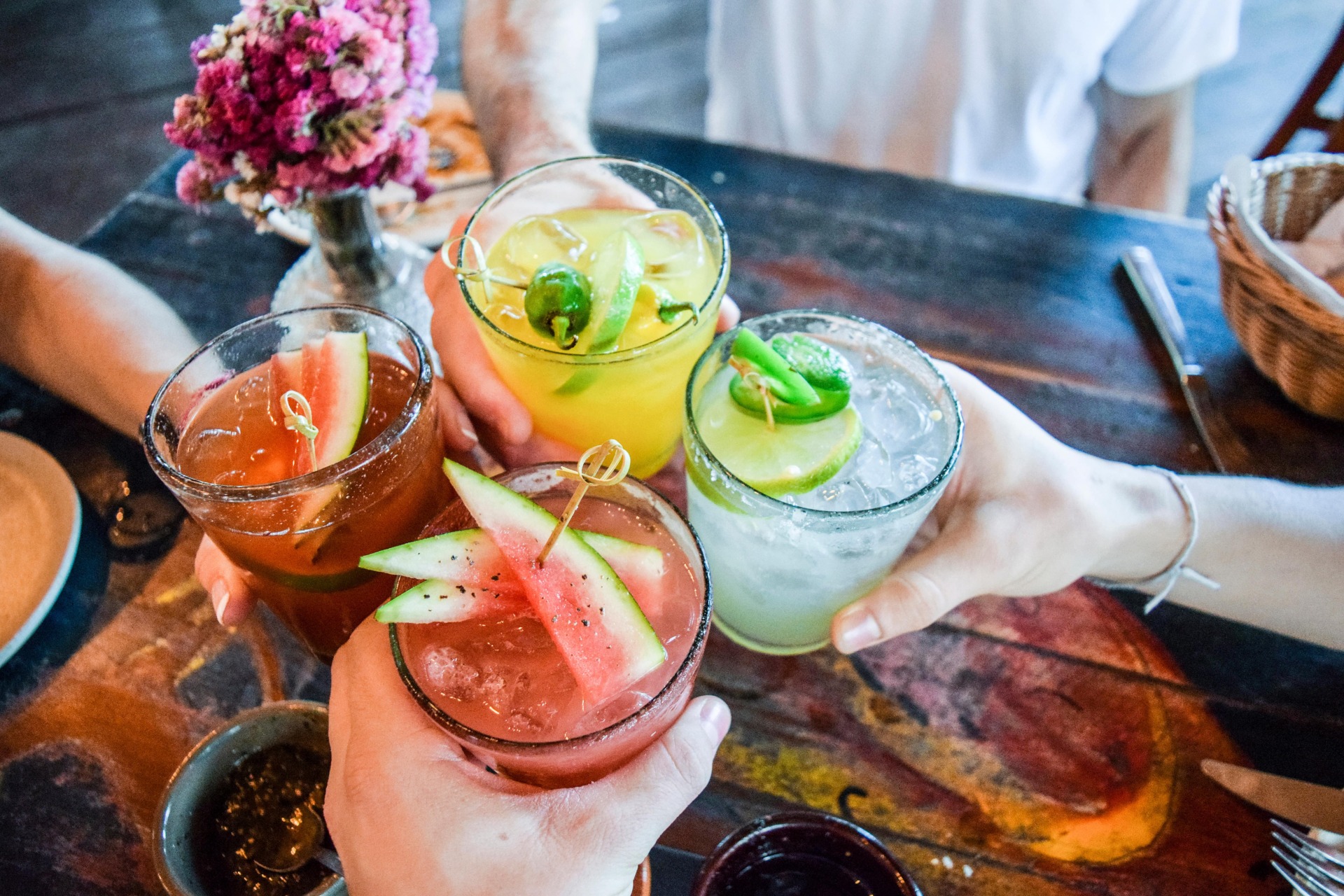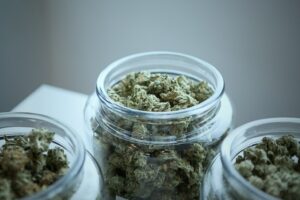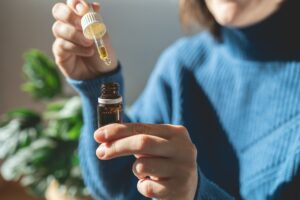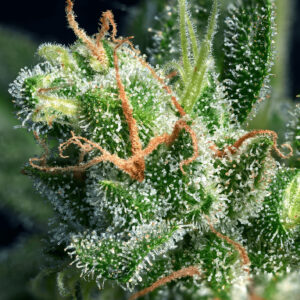“Let’s have a drink!” is something we hear all the time. We go for drinks with friends, have a drink to celebrate, have drinks after work, and we serve drinks at a party. In society, we drink for a lot of different reasons, and for the most part, it is culturally acceptable to consume alcohol with friends and family.
But is alcohol good for us? If we look at the science and the data, regular consumption of alcohol has a lot of unintended negative health consequences, from alcohol dependence to higher risk of different cancers, higher rates of depression and even a weakened immune system.
If you consume alcohol regularly, maybe it’s time to consider pivoting to something else. That could mean abstaining altogether, or approaching alcohol more consciously and in moderation. Or, it could be time to consider an alternative, such as weed-infused drinks. If consumed properly, marijuana can provide similar benefits to what we experience from alcohol, but with fewer health problems. Also, who doesn’t want to avoid the next day alcohol hangover?!
How Much is Too Much Alcohol
If you are a moderate drinker, you may be able to drink alcohol without noticing any negative effects. Experts debate if there are health benefits to drinking, but some possible ones include the following:
- Reduced risk of developing heart disease
- Reduced risk of ischemic stroke
- Reduced risk of diabetes
The Mayo Clinic indicates that health benefits are more likely achieved if you have a healthy diet and are physically active. Moderate drinking is considered to be one to two drinks a day for men and one per day or less for women. Examples of one drink include the following:
- Beer: 12 fluid ounces (355 milliliters)
- Wine: 5 fluid ounces (148 milliliters)
- Distilled spirits (80 proof): 1.5 fluid ounces (44 milliliters)
But even a moderate drinker has an increased risk of some cancers, including breast and esophageal cancer. Heavy or high-risk drinking is defined as more than three drinks on any day or more than seven drinks a week for women and for men older than age 65, and more than four drinks on any day or more than 14 drinks a week for men aged 65 and younger. Some of the health risks of excessive drinking and binge drinking include the following:
- Certain cancers
- Pancreatitis
- Sudden death if you already have cardiovascular disease
- Heart muscle damage leading to heart failure
- Stroke
- High blood pressure
- Liver disease
- Suicide
- Accidental serious injury or death
- Brain damage and other problems in an unborn child
- Alcohol withdrawal syndrome
- Depression and anxiety
- Sleep disturbance such as insomnia
- Addiction or alcohol dependence
Do You Have an Alcohol Problem?
If you’re asking if you have a drinking problem, chances are you do. It’s important to be aware of the warning signs of alcohol abuse:
- Drinking more than you plan to
- Couldn’t cut back or stop despite trying
- Spending a lot of time drinking, being sick or hungover
- Wanting alcohol so badly you can’t think of anything else
- Having problems with work, school or family because of your drinking habits
- Continuing to drink even though it is causing problems for you or in your relationships
- Bailing on other activities important to you in order to drink
- Continuing to drink even though it made you depressed or anxious, hurt your health or led to a memory blackout
- Drinking more and more to get the same effect
- Experiencing withdrawal symptoms when the buzz wears off, such as trouble sleeping, shakiness, restlessness, nausea, sweating, a racing heart, a seizure, or seeing, hearing or feeling things that aren’t there
The National Institute on Alcohol Abuse and Alcoholism (NIAA) offers a number of resources to help with your drinking problem. These can include traditional self-help groups such as Alcoholics Anonymous (AA) or secular AA; different types of treatments and medications; different types of health professionals available to work with you; and much more.
Replacing Alcohol With Marijuana
There’s evidence to suggest that it’s safer to consume weed than alcohol or tobacco. Studies have shown that alcohol can be about 114 times more deadly than marijuana.
Times are changing as people become more aware of the dangers of alcohol and the benefits of marijuana. As weed legalization continues to spread across the United States, we’re see an increasing number of young people who embracing marijuana in lieu of drinking.
The “Monitoring the Future” report, sponsored by The National Institute On Drug Abuse at the National Institutes of Health, reveals changes in the patterns of substance use in the college student population.
Statistics show that 44 percent of college students indicate they used marijuana in the previous year, while 56 percent reported drinking. This represents a substantial shift. In 2015, only 38 percent of college students said they used marijuana, while 62 percent of the same population admitted to drinking alcohol in 2019.
Another study, by Harris Poll, indicates that half of cannabis consumers aged 21 and up have reduced or replaced their alcohol consumption with marijuana since March 2020, when the COVID-19 health crisis began. The poll also found that one-third of those who use cannabis recreationally prefer cannabis to drinking alcohol.
Weed-Infused Drinks: An Alcohol Alternative
Shifting consumer attitudes and patterns have alcohol companies on their toes (and somewhat concerned!). While cannabis is growing in popularity, a new consumption method makes the switch from alcohol to marijuana even easier: Enter weed-infused drinks.
The weed-infused beverage market has two main categories: THC beverages and hemp-derived CBD beverages. Each category has its own legal requirements and route to market. But they have the same appeal: They’re non-alcoholic, have a touch of mocktail effervescence and are low- to no-calorie options.
Choosing a weed-infused drink is not unlike choosing another cannabis product. Knowing the type of effect you want to feel allows you to make informed decisions about the type of cannabinoid in the product, as well as the dose. Be sure to pay attention to serving sizes as well, to ensure you get the experience you want. For example, if you’re used to a gummy with 10mg of THC but your drink of choice contains 10mg in half of the product, you’re obviously going to experience a much more intense high if you finish the entire thing. As with edibles, it’s wise to start start low and go slow to see how you feel, rather than downing a drink and hoping for the best. Also, it’s important to know that water-based cannabis-infused formulations usually take between eight and ten minutes to kick in, as opposed to the 45 to 90 minute marker of oil-based edibles.






